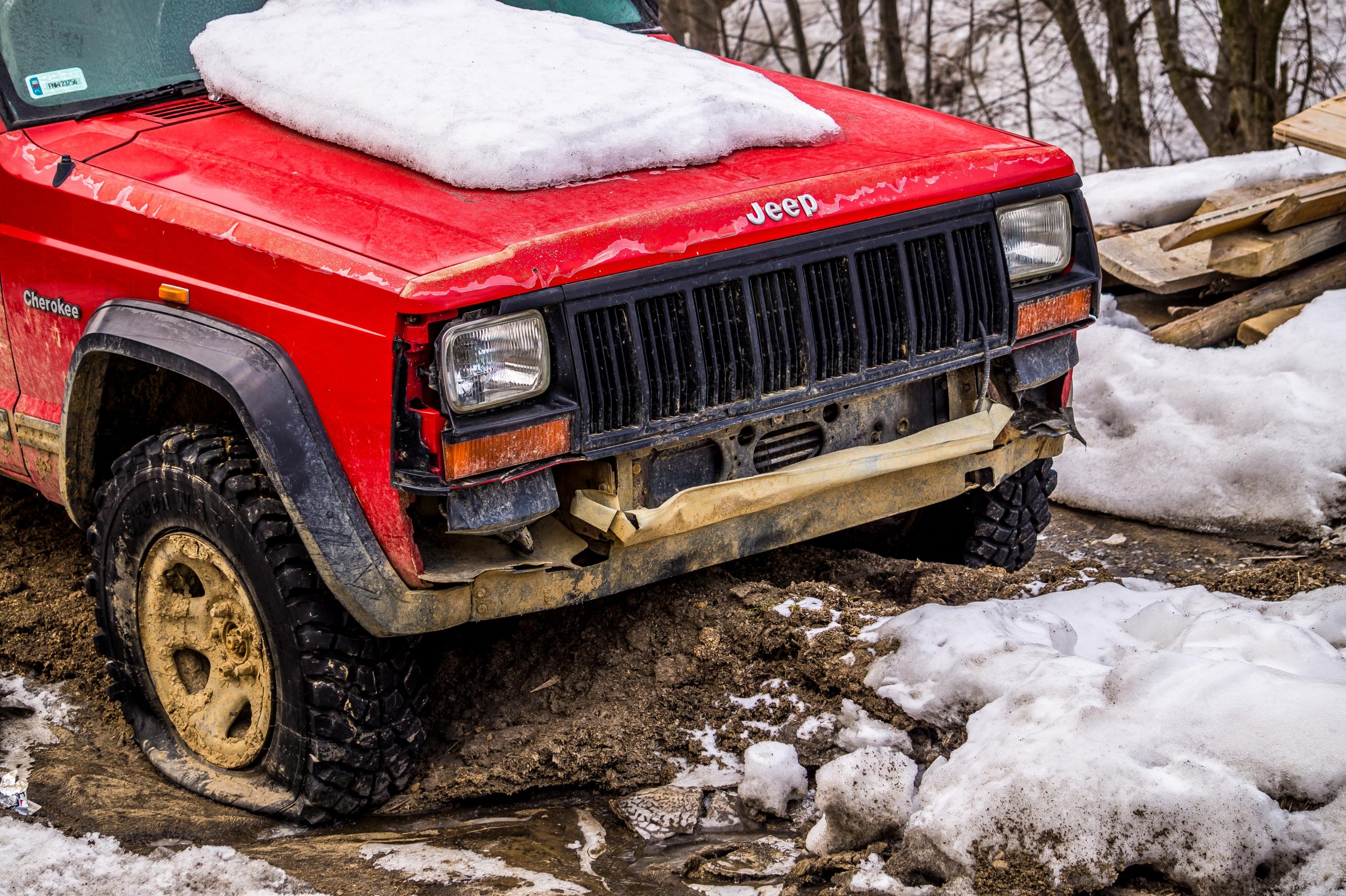The Jeep Cherokee transmission problems can cause issues such as erratic shifting, slipping gears, and stalling. These problems may be caused by faulty sensors, worn clutch discs, or transmission fluid leaks.
If you experience any of these issues, it is important to have your vehicle diagnosed and repaired by a qualified mechanic as soon as possible to prevent further damage and ensure your safety on the road. Jeep Cherokee owners may experience transmission problems that can lead to issues such as erratic shifting, slipping gears, and stalling.
These problems can arise from factors like faulty sensors, worn clutch discs, or transmission fluid leaks. To prevent further damage and ensure safety, it is crucial to promptly consult a qualified mechanic for diagnosis and repairs when encountering these issues.

Credit: www.cherokeeforum.com
Common Jeep Cherokee Transmission Problems
When it comes to the Jeep Cherokee, transmission problems are a common concern for many owners. These issues can cause frustration and anxiety, as well as potential safety hazards.
It’s important to be aware of the common problems that you might encounter with the Jeep Cherokee transmission, so you can take proactive steps to address them.
1. Transmission Slipping
One of the most common issues with the Jeep Cherokee transmission is slipping. This occurs when the transmission fails to properly engage, causing the vehicle to lurch or hesitate during acceleration.
Transmission slipping can be a sign of low transmission fluid, a worn-out clutch, or internal damage. If you notice any signs of slipping, it’s crucial to have your transmission inspected and serviced by a qualified mechanic to prevent further damage.
2. Transmission Overheating
Another prevalent problem encountered with the Jeep Cherokee transmission is overheating. This often occurs during heavy towing, stop-and-go driving, or in hot weather conditions. Overheating can lead to damage to the transmission components, resulting in diminished performance and potential failure.
Regular maintenance and awareness of the vehicle’s towing and driving capabilities can help mitigate the risk of transmission overheating.
Causes
If you are experiencing Jeep Cherokee transmission problems, it could be due to issues with the torque converter. Symptoms, like delayed shifting or slipping gears, may indicate internal damage requiring professional diagnosis and repair. Regular maintenance and timely fluid changes can help prevent these potential causes.
1. Inadequate Transmission Fluid Levels
Inadequate transmission fluid levels can be one of the causes of Jeep Cherokee transmission problems. The transmission fluid is responsible for lubricating the moving parts in the transmission and preventing excessive friction and heat buildup.
When the fluid levels are low, the transmission may not receive enough lubrication, leading to increased friction and wear on the components.
Low transmission fluid levels can occur due to:
- Leakage
- Neglecting regular fluid checks and changes
Leakage can occur from a damaged seal or gasket, which allows the fluid to escape from the transmission. Neglecting regular fluid checks and changes can result in the fluid becoming contaminated or degraded over time, leading to a decrease in its effectiveness.
Regular maintenance and fluid checks can help identify and address low fluid levels on time, helping to prevent potential transmission problems.
2. Faulty Transmission Solenoid
A faulty transmission solenoid is another possible cause of Jeep Cherokee transmission problems. The transmission solenoid is responsible for controlling the flow of transmission fluid throughout the system. It operates through electrical signals sent by the vehicle’s computer, regulating the shifting of gears and ensuring smooth transmission operation.
Signs of a faulty transmission solenoid may include:
- Erratic shifting
- Failure to shift gears
- Delayed engagement
A faulty solenoid can disrupt the transmission’s ability to shift properly, leading to issues such as rough or delayed gear changes. It can be caused by electrical malfunctions, mechanical failures, or internal damage.
Diagnosing and repairing a faulty transmission solenoid typically requires the expertise of a professional mechanic who can properly assess the problem and perform the necessary repairs.
Diagnosis
The diagnosis of transmission problems in a Jeep Cherokee is crucial to ensure timely repairs and prevent further damage to the vehicle. By identifying the issues early on, you can save yourself from costly repairs and potential breakdowns on the road.
1. Check Engine Light Indications
One of the first signs that there might be a transmission problem in your Jeep Cherokee is the illumination of the Check Engine Light (CEL). This indicator is designed to alert you to potential issues with the vehicle’s systems, including the transmission. If the CEL comes on, it is essential to take it seriously and have the vehicle diagnosed as soon as possible.
2. Transmission Fluid Color And Odor
An important aspect of diagnosing transmission problems in a Jeep Cherokee is examining the transmission fluid. The color and odor of the fluid can provide valuable insights into the condition of the transmission. Here’s what you should look out for:
Fluid Color
- Red: If the transmission fluid is a bright red color, it indicates that it is clean and in good condition. This is what you want to see.
- Brown or Black: A dark or murky fluid color suggests that the fluid is old and contaminated. This could be a sign of internal wear or other transmission problems.
- Milky: If the fluid has a milky appearance, it may indicate that there is coolant leaking into the transmission. This could be a result of a faulty radiator or a damaged gasket.
Fluid Odor
- Burnt Smell: If the transmission fluid has a burnt smell, it may indicate that the transmission is running hot or that there is internal damage.
- Sweet Smell: A sweet smell coming from the transmission fluid could suggest that there is a coolant leak, similar to the milky appearance.
Remember, these signs are not definitive proof of a transmission problem but are indicators that should be taken seriously. Consult with a qualified mechanic who can accurately diagnose the issue and recommend the appropriate repairs or maintenance required for your Jeep Cherokee’s transmission.

Credit: auto.hindustantimes.com
Preventive Maintenance
Regular preventive maintenance is key to keeping your Jeep Cherokee’s transmission in optimal condition. By following a few simple steps, you can help avoid potential transmission problems and ensure a smooth driving experience. Below, we’ll delve into two crucial aspects of preventive maintenance: regular fluid checks and changes, and professional transmission inspections.
1. Regular Fluid Checks And Changes
Checking and changing transmission fluid regularly is essential for maintaining the health of your Jeep Cherokee’s transmission. This routine maintenance helps to prevent a range of issues, including premature wear and potentially costly repairs.
By adhering to the manufacturer’s recommended fluid change intervals, you can prolong the lifespan of your transmission and avoid unexpected breakdowns.
2. Professional Transmission Inspections
Regular professional inspections of your transmission are crucial for identifying any potential issues before they escalate. Trusted technicians can examine your transmission system thoroughly, checking for any signs of wear, leaks, or abnormal operating conditions.
Addressing any minor problems early can prevent major breakdowns and save you from costly repairs down the line.
Repair Options
Are you troubled by Jeep Cherokee transmission problems? Explore a range of repair options to address your vehicle’s transmission issues effectively. With expert solutions, you can resolve the problems and get your Jeep Cherokee back on the road in no time.
Repairing transmission problems in a Jeep Cherokee can be crucial for maintaining driving performance. When addressing these issues, vehicle owners have two primary options: DIY repairs or seeking professional assistance.
DIY vs. Professional Repairs
Decide between tackling the transmission repair project alone or entrusting it to a skilled mechanic.
Transmission Replacement Costs
Understand the potential expenses associated with transmission repairs to budget effectively.

Credit: www.calilemonlawyers.com
Wrapping Up
It’s crucial to stay aware of potential transmission issues in your Jeep Cherokee. Regular maintenance and timely repairs can help prevent major breakdowns. Be proactive in addressing any symptoms or warning signs to ensure a smooth driving experience.
Keep up with manufacturer recommendations and consult with a qualified mechanic for optimal performance and peace of mind.
FAQs
What are the common Jeep Cherokee transmission problems?
Jeep Cherokees, particularly models from 2014 to 2017, are known for issues with their 9-speed automatic transmissions. These problems include rough shifting, hesitation, complete failure, and even shifting into neutral unexpectedly.
What are the warning signs of a Jeep Cherokee transmission problem?
Be on the lookout for these signs: rough or jerky gear changes, vibrations during acceleration, delayed gear engagement, slipping gears, or the car unexpectedly rolling away when in park.
How much does it cost to fix a Jeep Cherokee transmission problem?
Unfortunately, transmission repairs are expensive. Depending on the severity of the problem, repairs can range from a few hundred dollars for minor issues to a complete transmission replacement costing several thousand dollars.
Is there a recall on Jeep Cherokees for transmission problems?
Yes, there was a recall in 2022 for Jeep Cherokees from 2014 to 2017 due to a risk of the car rolling away unexpectedly because of a transmission issue. Check with a Jeep dealership to see if your Cherokee is included in the recall and needs repairs.
What can I do to prevent transmission problems in my Jeep Cherokee?
Here are some preventative measures: regular transmission fluid flushes and changes following the recommended maintenance schedule, avoiding hard accelerations and towing heavy loads, and addressing any early warning signs promptly to prevent minor problems from snowballing into major repairs.
How Do I Know If My Transmission Is Going Bad In My Jeep?
Signs of a failing Jeep transmission include slipping gears, unusual noises, rough shifting, or leaking fluid. Have it checked by a mechanic if you notice any of these issues.

